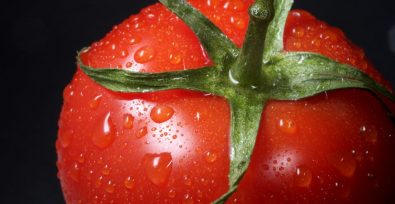Tomato purees marketed as “Italian” in U.K. supermarkets may be hiding a sinister connection to the forced labor of Uyghurs and other minority groups in China’s Uyghur Region. Despite labels suggesting Mediterranean origins, investigative testing has found that some of these products likely contain tomatoes grown in the Uyghur Region under conditions rife with exploitation.
This troubling revelation, uncovered by the BBC, calls into question the transparency of global supply chains and highlights the U.K.’s failure to safeguard consumers from unwittingly funding forced labor.
Beaten to make quotas
China dominates the global tomato trade, producing a third of the world’s tomatoes. The Uyghur Region is a key hub, exporting tomato paste worldwide. However, the same region has become synonymous with severe human rights abuses, including the detention of over a million Uyghurs and other Muslim minorities in so-called “re-education camps.”
Many detainees are forced to work in agricultural fields, including tomato farms, to meet oppressive quotas.
Mike Rudin and Sarah Buckley report,
The BBC has spoken to 14 people who say they endured or witnessed forced labour in Xinjiang’s tomato fields over the past 16 years. “[The prison authorities] told us the tomatoes would be exported overseas,” Ahmed (not his real name) said, adding that if the workers did not meet the quotas – as much as 650kg a day – they would be shocked with electric prods.
Mamutjan, a Uyghur teacher who was imprisoned in 2015 for an irregularity in his travel documentation, says he was beaten for failing to meet the high tomato quotas expected of him.
“In a dark prison cell, there were chains hanging from the ceiling. They hung me up there and said ‘Why can’t you finish the job?’ They beat my buttocks really hard, hit me in the ribs. I still have marks.”
How forced labor tomatoes reach U.K. shelves
Tracing the supply chain reveals a troubling lack of accountability. Italian food processor Petti, whose tomato products appear in major U.K. supermarkets, has sourced over 36 million kilograms of tomato paste from Xinjiang Guannong, a company deeply embedded in the Uyghur Region.
While Petti denies sourcing directly from Xinjiang Guannong since 2020, evidence suggests otherwise. Investigators uncovered barrels with Xinjiang Guannong’s branding at a Petti facility as recently as 2023. Petti has admitted to sourcing from Bazhou Red Fruit, another Chinese supplier with direct links to Xinjiang Guannong, raising concerns over deliberate obfuscation.
U.K. supermarkets—including Tesco, Asda, and Lidl—have been implicated. While Tesco suspended supply from Petti in response, others dispute the findings or claim their internal investigations did not uncover forced labor links.
U.K. falls behind in tackling forced labor
Unlike the U.S., which enforces a strict ban on imports tied to Uyghur forced labor under the Uyghur Forced Labor Prevention Act, the U.K. relies heavily on voluntary self-regulation by businesses. This lenient approach has drawn sharp criticism from activists.
Chloe Cranston of Anti-Slavery International warns, “The U.K. risks becoming a dumping ground for goods tainted by forced labor. Without strong, enforceable laws, supermarkets and suppliers will continue to exploit these loopholes.”
While the U.K. government has promised action, tangible steps remain elusive. Proposed measures, such as improved labeling standards, fail to address the root cause: the unchecked import of products tied to human rights abuses.
What needs to change?
The fight against forced labor requires more than consumer awareness—it demands systemic change. Strong legislation like that seen in the U.S. is crucial. Without it, supply chains will remain opaque, and the exploitation of Uyghur workers will persist.
The Freedom United community and over 280 organizations, led front and center by survivors and families of current detainees, are calling for the dismantling of the Uyghur forced labor system.
Add your voice to the movement by signing the petition today!







Freedom United is interested in hearing from our community and welcomes relevant, informed comments, advice, and insights that advance the conversation around our campaigns and advocacy. We value inclusivity and respect within our community. To be approved, your comments should be civil.
Angry